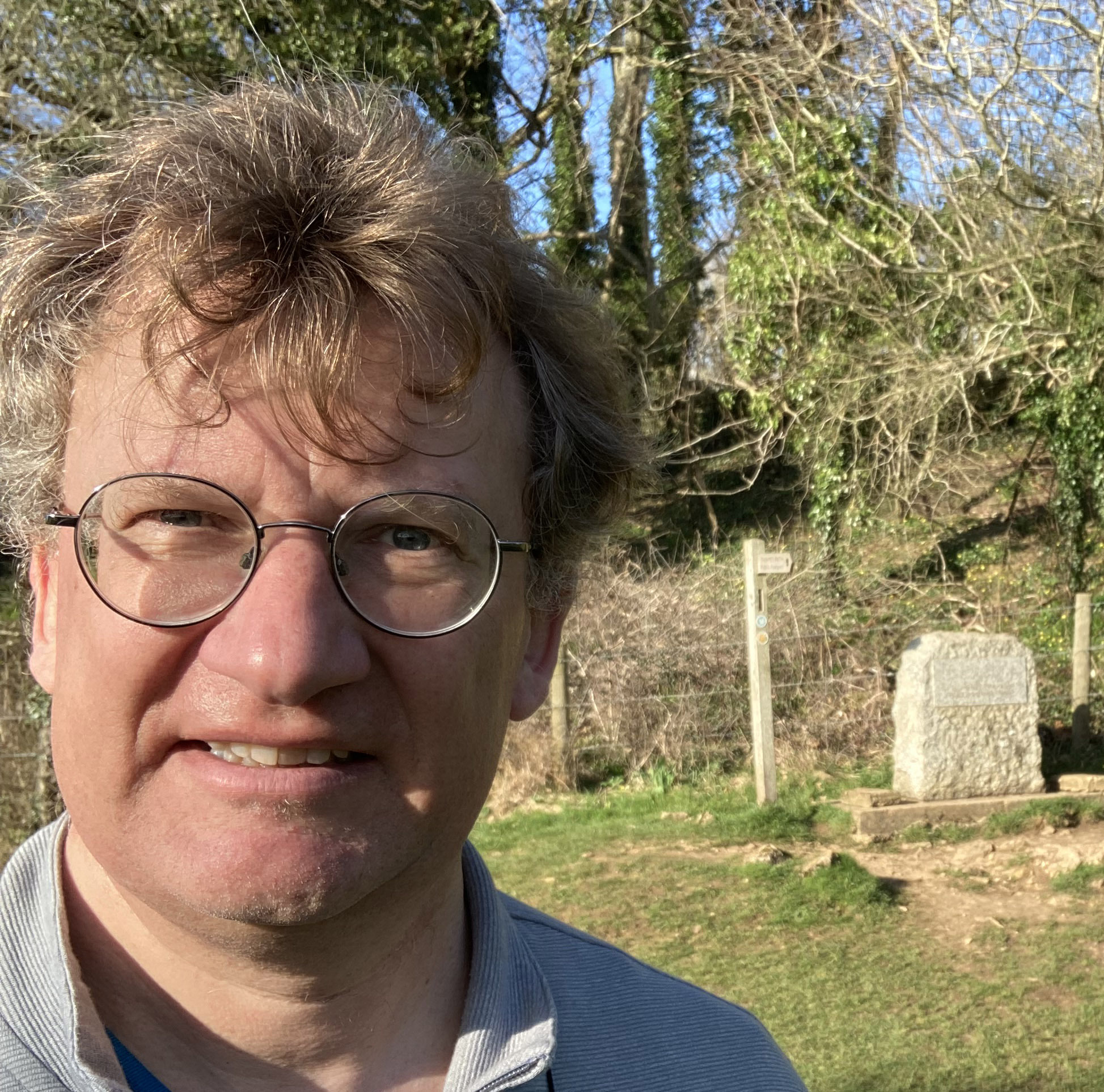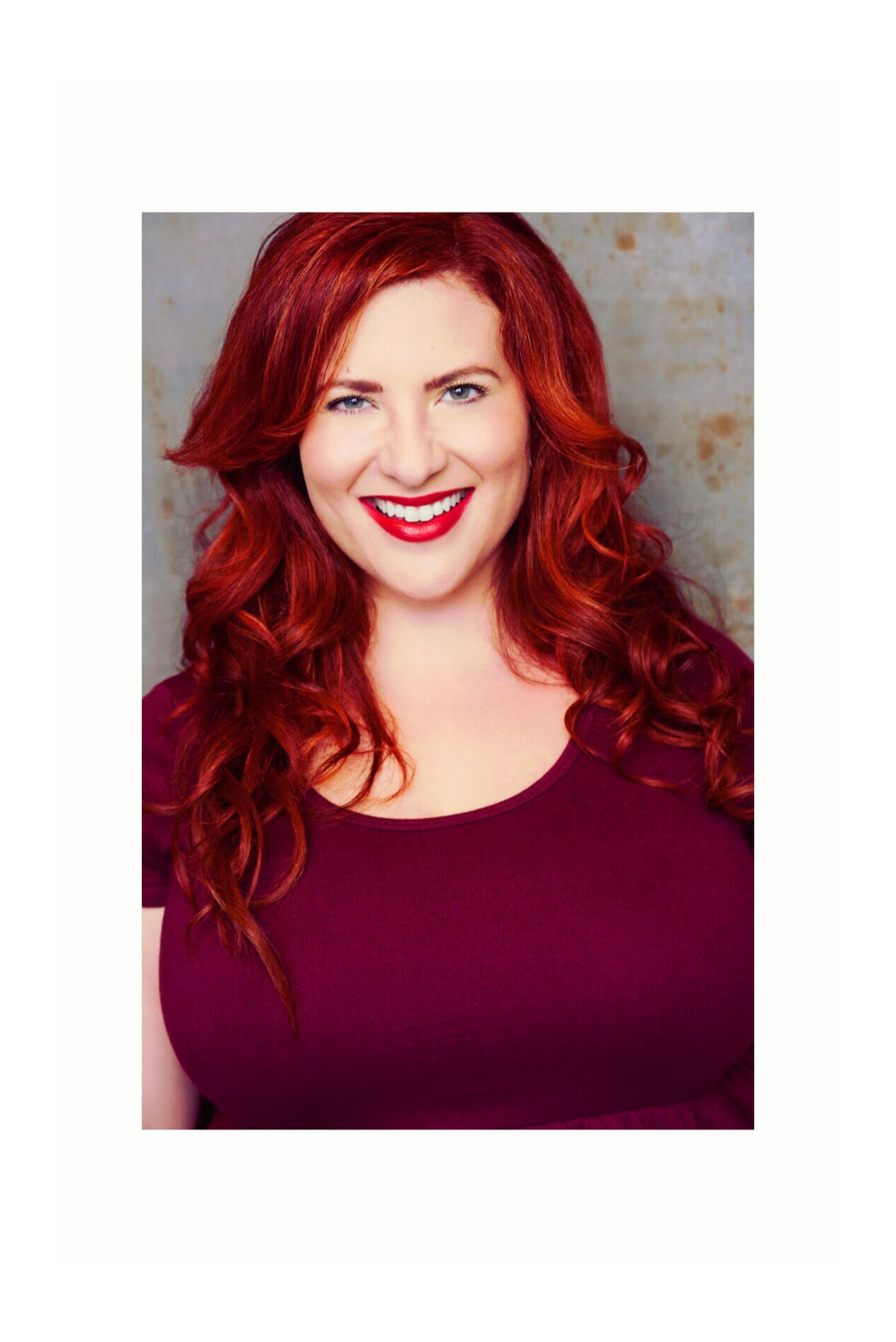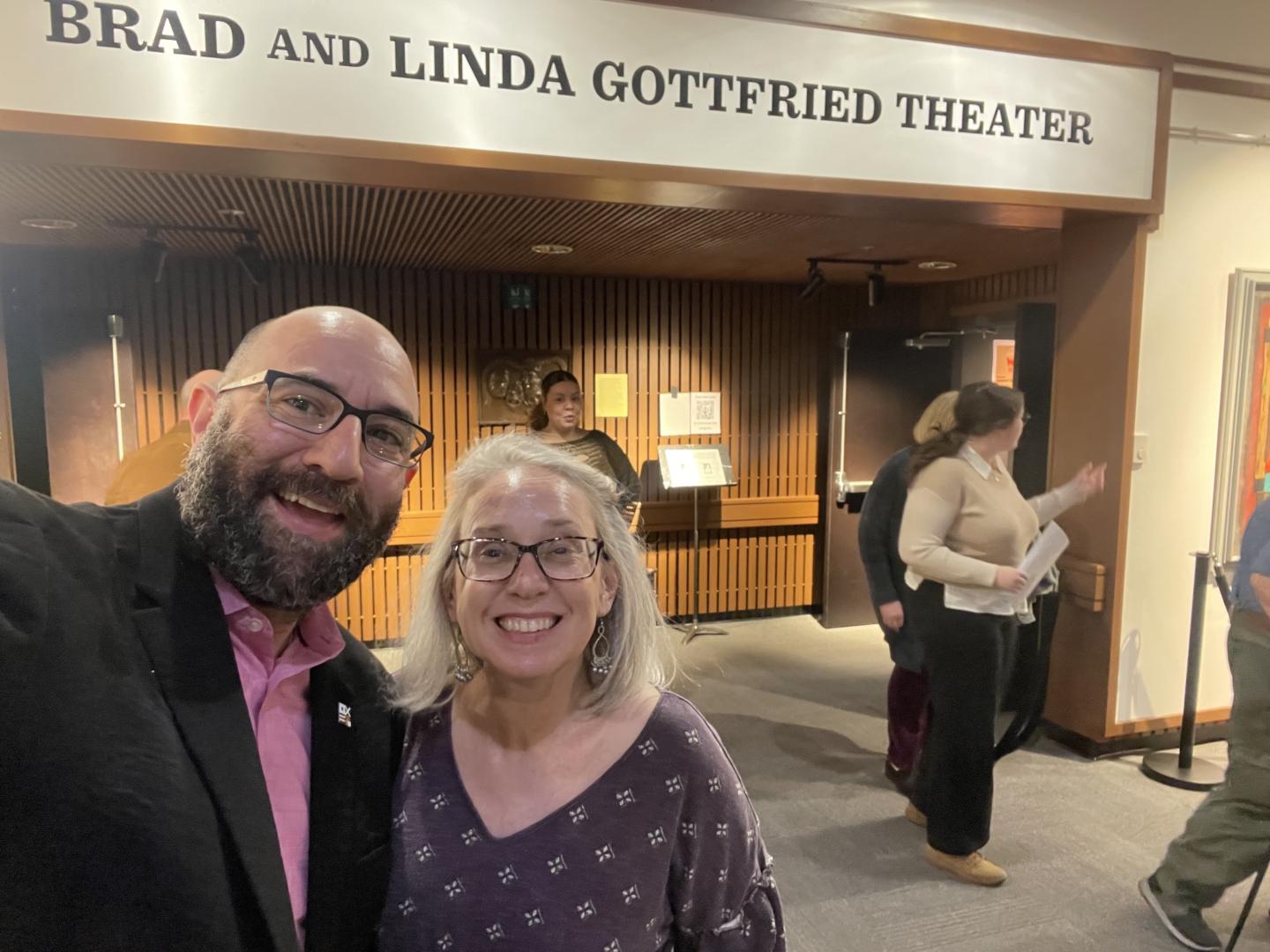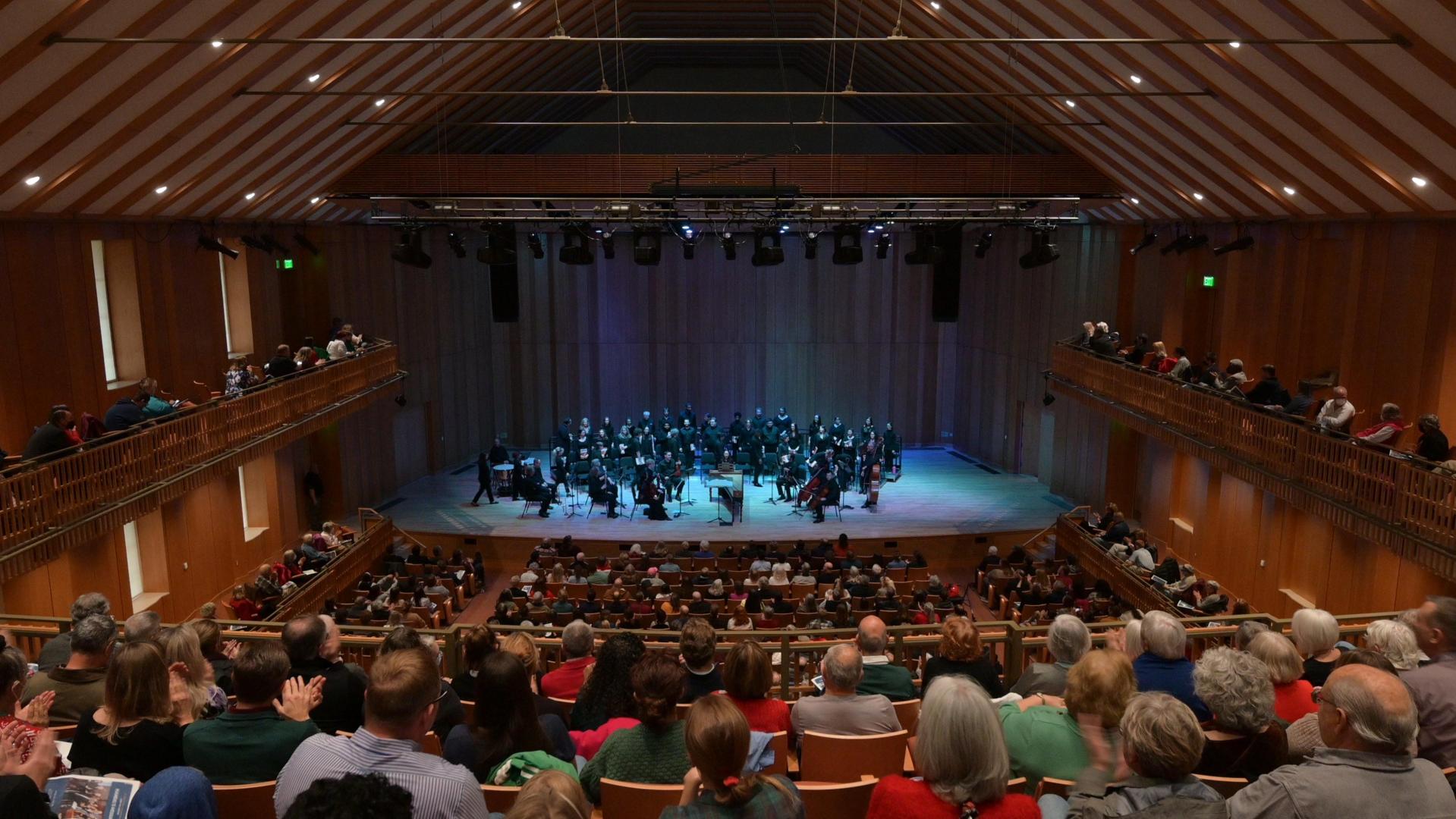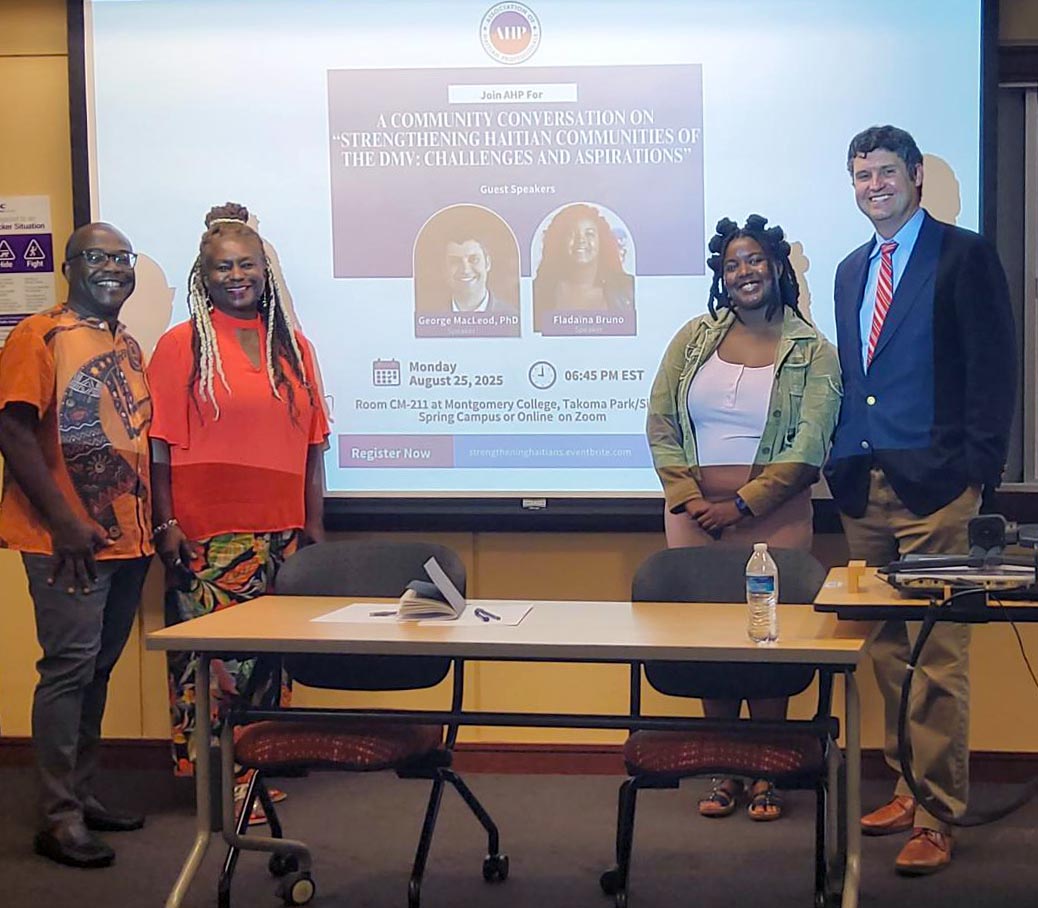Where Sound Becomes Expression
At St. Mary’s College of Maryland, the music concentration offers a dynamic and supportive environment where students develop as performers, composers, scholars, and creative thinkers. Rooted in the liberal arts, the program blends rigorous musical training with intellectual exploration—encouraging students to engage deeply with music as both a discipline and a cultural force. Whether studying classical repertoire, composing original works, or experimenting with electronic sound, students benefit from close faculty mentorship, small ensemble experiences, and access to practice rooms, recording facilities, and performance spaces. Here, music is more than a skill—it’s a way of thinking, connecting, and creating with purpose.
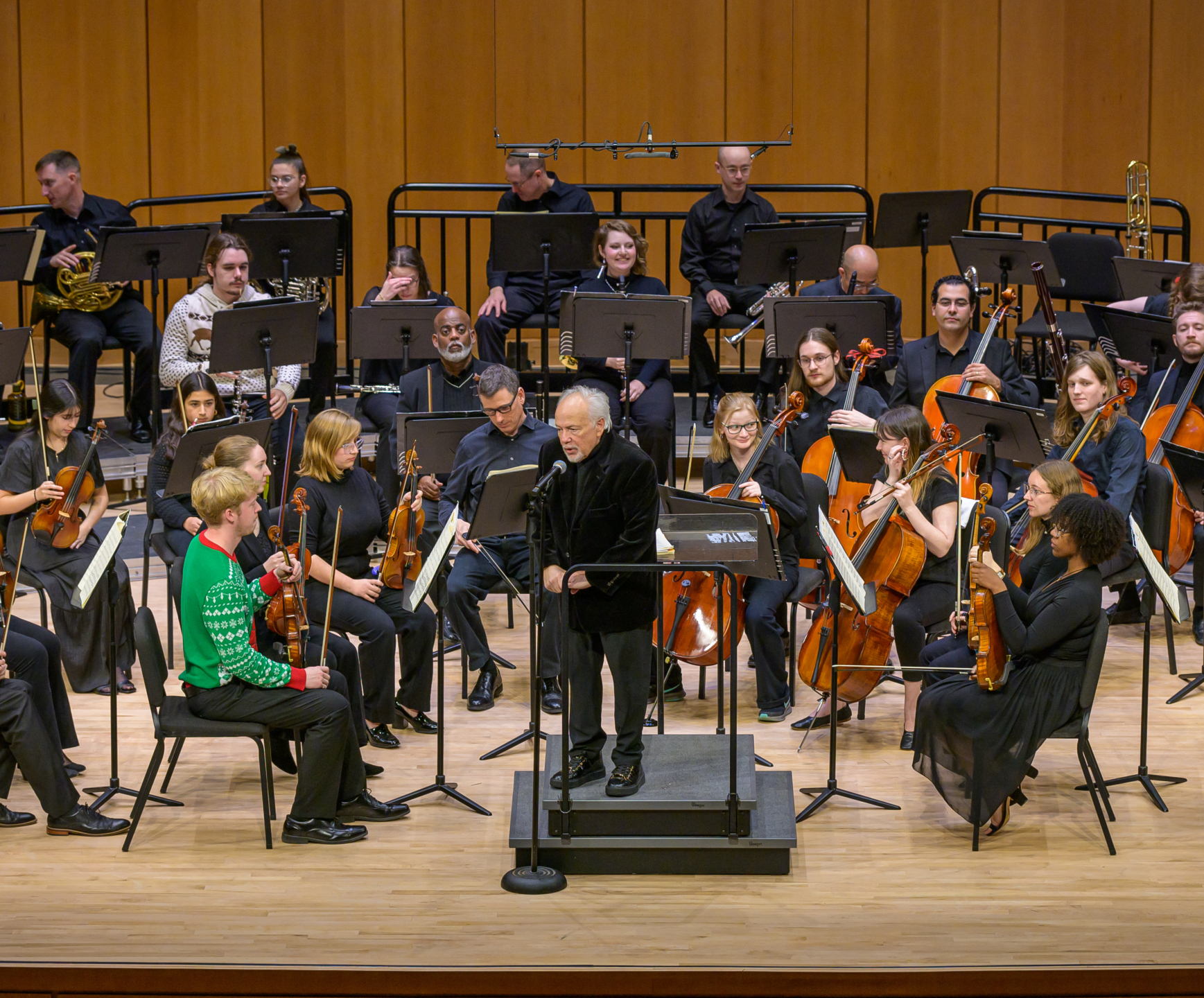
100%
of music majors complete a capstone project
89%
of students participate in internships, international experiences and undergraduate research
10:1
Student to faculty ratio gives you the personal attention you’re looking for.
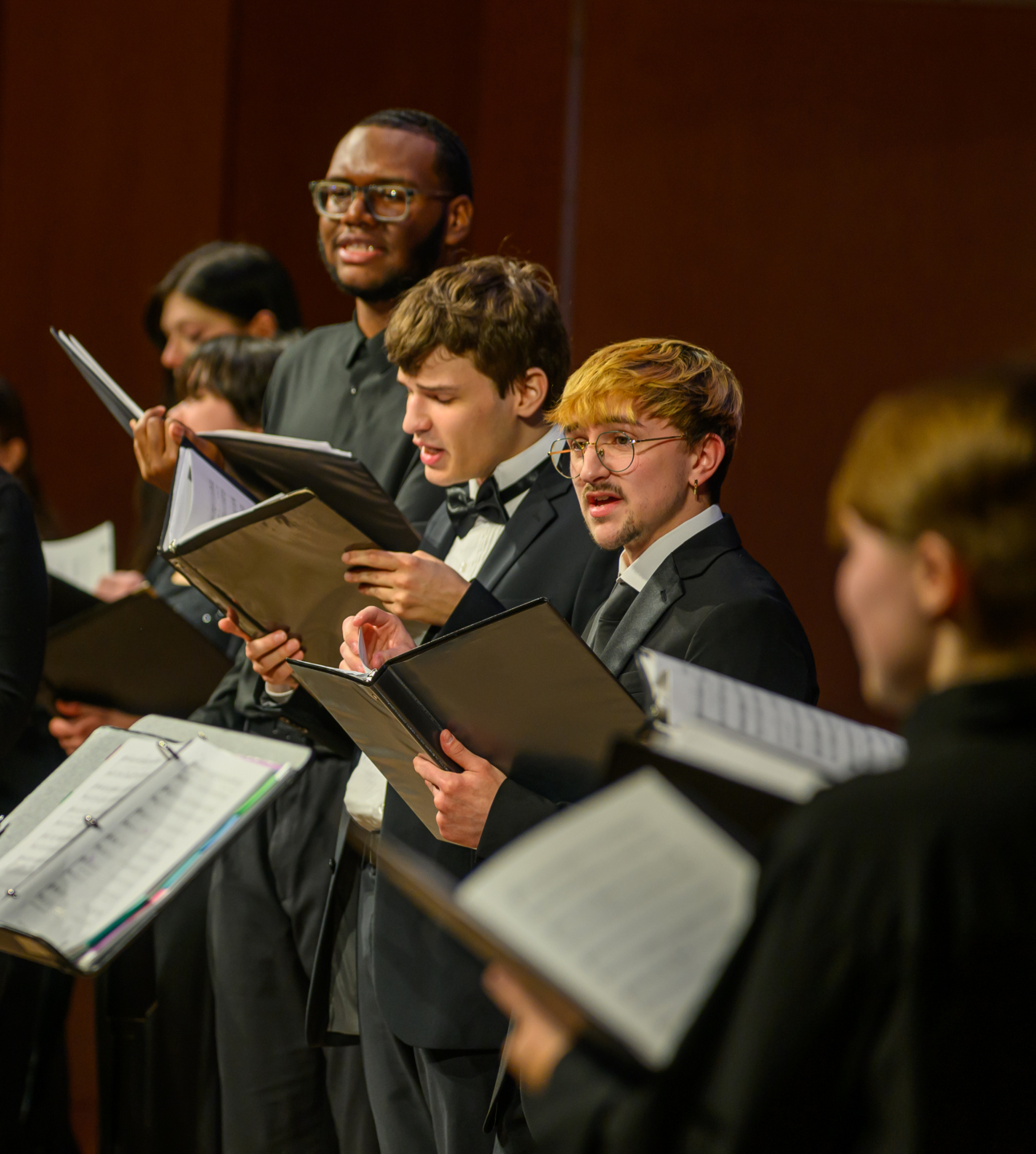
Performing Arts Music Concentration
The performing arts music concentration at St. Mary’s College of Maryland provides students with a strong foundation in music theory, history, performance, and creative practice. Whether focusing on classical performance, composition, or interdisciplinary exploration, students gain technical skills and critical insight through small classes, personalized instruction, and hands-on experiences. The program emphasizes both individual artistry and collaboration, encouraging students to engage with music as a form of expression, inquiry, and cultural understanding. With access to well-equipped facilities and frequent performance opportunities, students graduate prepared to pursue advanced study, professional work in music, or to integrate their musical background into a variety of careers.
Music Minor
The Music minor at St. Mary’s College of Maryland allows students to deepen their musical knowledge and skills while pursuing another major. With coursework in music theory, history, and performance, the minor offers a flexible and enriching path for those who want to continue their musical development in a liberal arts setting. Whether you sing, play an instrument, compose, or simply love to engage with music intellectually, the program supports creative growth and artistic expression through small classes, dedicated faculty, and performance opportunities. It’s an ideal complement to majors across the arts, sciences, and humanities..

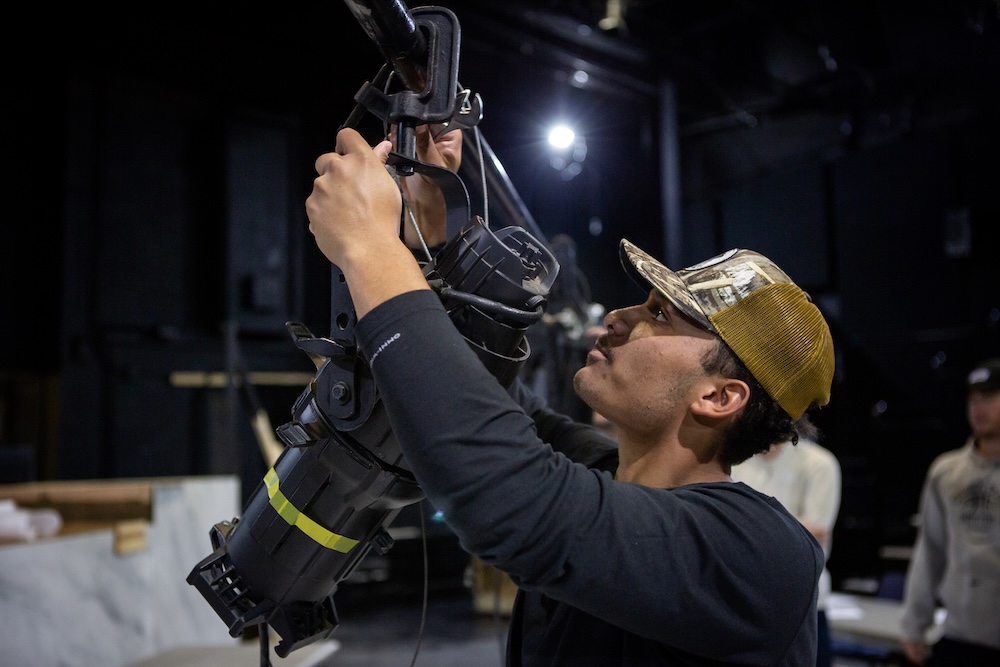
Musical Arts Administration
The Musical Arts Administration minor at St. Mary’s College of Maryland combines artistic passion with real-world management skills. Designed for students interested in the behind-the-scenes operations of the music and performing arts industries, this interdisciplinary program blends coursework in music, business, and public relations. Students explore topics such as event planning, arts marketing, nonprofit management, and cultural policy while gaining hands-on experience through internships and campus performances. Whether aiming to run a theater, manage a symphony, or support arts outreach, this minor prepares students to become creative leaders in the vibrant world of arts administration.
Courses Offered
Academic Music Courses
- Academic Music Courses>
Performing Arts Courses
- Performing Arts Courses>
Applied Music Courses
- Applied Music Courses>
Honors College Promise
As the National Public Honors College, St. Mary’s College of Maryland empowers music students to pursue their passion with intellectual rigor, creative freedom, and purpose. The music concentration reflects the Honors College Promise by offering close mentorship, opportunities for original composition and performance, and an interdisciplinary approach that connects music to history, culture, and innovation. Whether performing on stage, exploring global musical traditions, or composing new works, students are challenged to think critically, listen deeply, and contribute meaningfully to the artistic and academic community.
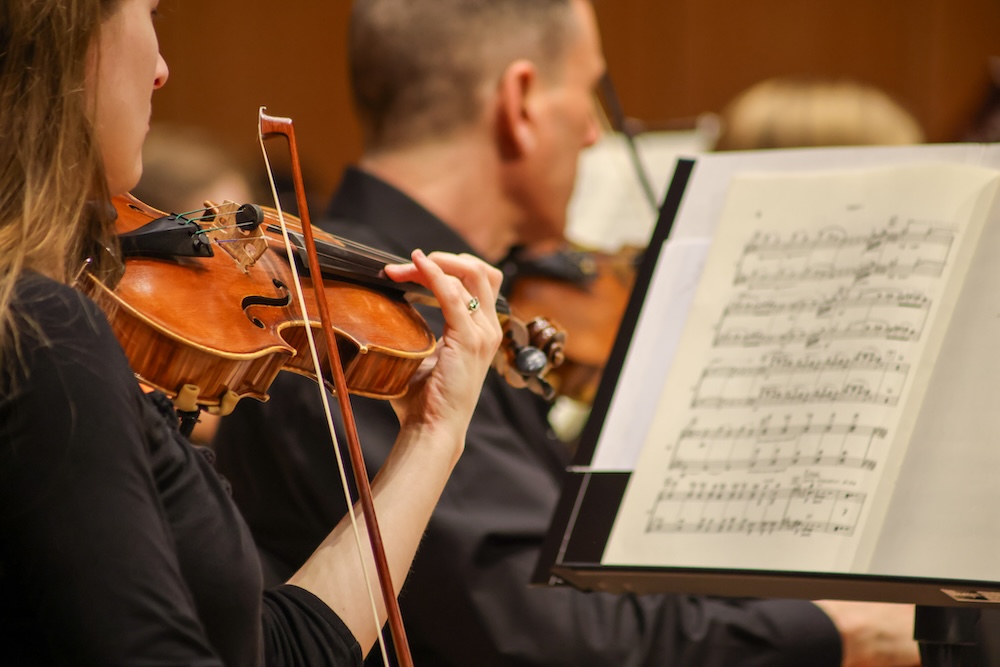
"The music part of the Performing Arts Center is really really amazing. We've been practicing in both the Recital hall and the actual Auditorium and both spaces have been designed for music and sound...It's so great to be in the new building."
- Kathryn C '24
After you Graduate
Our music major graduates regularly go on to study at top graduate programs in performance, composition, musicology, or arts management, and then into interesting music careers. Students interested in education have entered our Masters in Teaching program and are working in schools throughout Maryland (and beyond). Others have found their own paths as instrument makers or technicians, self-employed music teachers, or combining making music on their own terms with employment outside of music.
LATEST NEWS
Connect with Your Program Chairs
All the faculty here at St. Mary's College of Maryland want to help you explore your interests and set you up for success. We look forward to connecting with you and meeting you on campus.

